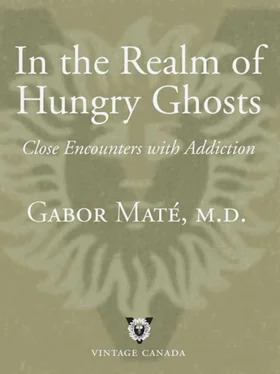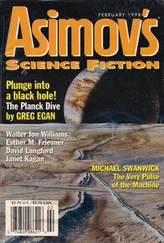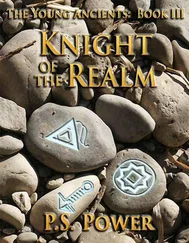My initial reaction was anger—the addicted mind’s way of resisting shame—but only for a moment. I soon allowed the feelings of shame to wash over me without either resisting them or letting them knock me down, and I felt grateful. Roman emperors, as they proceeded in triumphant procession with the war booty and captives driven before them amongst the cheering throngs, had a slave behind them on the chariot whose duty it was to whisper in their ear at regular intervals: “Sire, you are mortal.” Life finds ways of delivering those messages just when we most need them. Susan had done me the favour of reminding me what my reality was in the absence of sobriety and integrity.
If I didn’t file it as yet another ADD trait, my habitual lateness represented three factors that also express the addictive process: lack of impulse control —I’d just keep on doing whatever it was that caught my attention instead of making sure I was on time; failure to consider future consequences —“forgetting to remember the future,” in the words of psychologist and ADD researcher Russell Barkley; and lack of thought for the impact of my behaviour on other people. It became crystal clear that the addiction process—and the worldview that accompanies it—had polluted my life on levels I had not ever considered.
Addiction is primarily about the self, about the unconscious, insecure self that at every moment considers only its own immediate desires—and believes that it must behave that way. In all cases the process arises from the unmet needs of the helpless young child for whom this constant self-obsession appears, to begin with, as a matter of survival. That he cannot rely on the nurturing environment becomes his core myth. No such environment even exists—or so he has come to believe in his bones and in his heart, which were parched by early loss.
The mind of the addict is beset by constant worry, soothed only by the addictive substance or activity. The hunger and the urgent drive to satisfy it are ever present, regardless of circumstances. My family has remarked that when I eat, unless I take particular care, my habit is to bend low over the plate and shovel the food into my mouth as if it’s about to disappear. And yet only one time in my life have I starved or experienced deprivation: during my first year in the Jewish ghetto of Nazi-occupied Budapest. That was enough to program my brain with the image of an uncertain, unyielding and indifferent world. Once programmed, the addicted mind creates a world of emptiness where one must scratch and grab for every bit of nourishment and be ever vigilant for every opportunity to get more. The addict hasn’t grown out of the stage of infancy that has been called the narcissistic phase, the period when the fledgling human being believes that everything happens because of her, to her and for her. Her own selfish needs are her only point of reference. We move through stages of development when the needs we have in each are fully satisfied. Then the brain can let go. The addicted mind never lets go.
The teaching in Susan’s letter came at a time when I was secure enough to receive it, when I would neither deny its truth nor be overwhelmed by the shame it triggered. I had just been teaching and demonstrating compassionate curiosity to the workshop participants and, lo and behold, had absorbed some of it myself. Now, as I applied it to my own behaviour, I saw the chronic lateness not as a character flaw to beat myself up about or as a “nuisance” I could just dismiss flippantly, but as another attempt by my addiction-prone mind to maintain its illusion of freedom and control. “Nobody tells me what to do and when.” And, of course, it was a sign of my persistent refusal to be responsible—another hallmark of the addicted mind. Seeing it that way, I could let go of it.
As soon as I got home, I wrote back:
Thanks for your very clear message. There is little I can say in defence, since you’re absolutely right. The only charge to which I don’t plead guilty is that I behave this way because these patients are junkies. A quick phone call to my former nurse, Maria, would convince you that it was no better in my private practice. Which, however, is no excuse.
Among the many ways I could make myself late for work was to stop by at Sikora’s in the morning or during lunch break. I was indulging my addictions instead of treating my addicted patients. My letter to Susan continued:
I’ve made so many promises in the past that it’s meaningless to make another one. So, more practically: On Monday I’ll be there at 9:30. I’ll be bringing ten signed, undated cheques for $100.00 each, made out to the Portland Hotel Society. Any day I’m even one minute past 9:30, you date the cheque and deposit it. Should those ten run out, I’ll bring in another ten.
Thanks again. I deeply regret the hassle and frustration I’ve caused you and the inconvenience to our clients.
That e-mail exchange took place in late September. As of May 2007, Susan has had to cash nine of the cheques. The atmosphere in the clinic has been transformed. I’ve had the pleasure of facing my clients without shame clouding my eyes and of working alongside colleagues who no longer have to compensate for my tardiness and to disguise their resentment. Sweet are the rewards of sobriety.
The prewritten cheques are not a form of self-punishment, but a way of building a structure that helps keep me sober. They would not be necessary if I possessed sufficient self-regulation; I would just show up on time. They serve me as the sponsor serves the Twelve-Step novice: when in the morning an urge arises to stay writing by my computer or to keep pedalling on my exercise bike, the thought of the lost income reminds me of my responsibilities and helps to regulate my insufficiently active prefrontal impulse-control brain circuits. Creating such structures is part of establishing an external environment that supports mental awareness and responsible behaviour. All addicts need them.
Another mental structure I’ve committed to is truth-speaking. Even before I completely stopped buying compact discs, for example, for months I did not lie about my purchases. Arriving home with a new musical acquisition, I would tell Rae about it. I had nothing to hide, my compassionate curiosity discovered. I hadn’t killed anyone; I’d only bought a symphonic recording. Exposed to the light of day the addictive compulsion does not develop power and heft. I had much less of the urge to binge, and the occasional visit to the music store did not evoke a helpless desire to go back the same day or the next—another freedom I relished. Music without guilt—a revelation. My advice to anyone with addictive behaviours is to begin telling the truth. If you are not ready to drop the behaviour, then choose it openly. Tell your spouse or friends what you are doing; keep it in the daylight. At the very least, do not compound your inner shame by lying. Better you should look “bad” in the eyes of others than to sink further in your own estimation of yourself.
More recently I’ve committed to not buying another CD until at least March 2009. Rae has three signed, undated cheques, each for one thousand dollars, as my guarantee. It’s now the beginning of October 2007 as I’m revising the manuscript for this book. So far, so good. Quite contrary to feeling frustrated about any thwarted desires, I have discovered a much more satisfying freedom in not allowing the addiction process to run my life. And I’ve found another, unlooked-for benefit: just as the addiction process permeates every area of your existence, so does sobriety. As you become less attached to your addiction, you also become calmer, less attached to other things that don’t matter nearly as much as you used to believe. Your responses are less automatic, less rigid. Not having reason to be so harsh on yourself, you are not so inclined to find fault with others. Things don’t always have to go your way for you to be able to enjoy life.
Читать дальше












